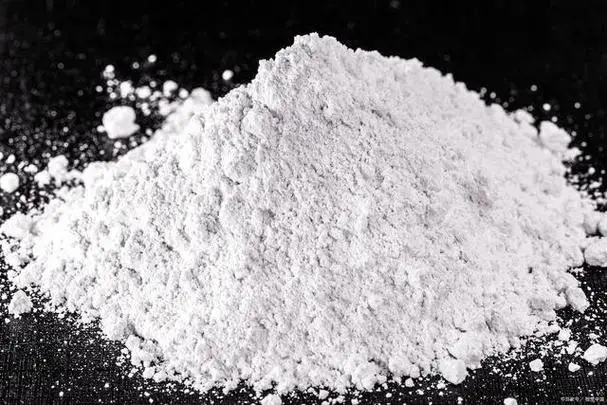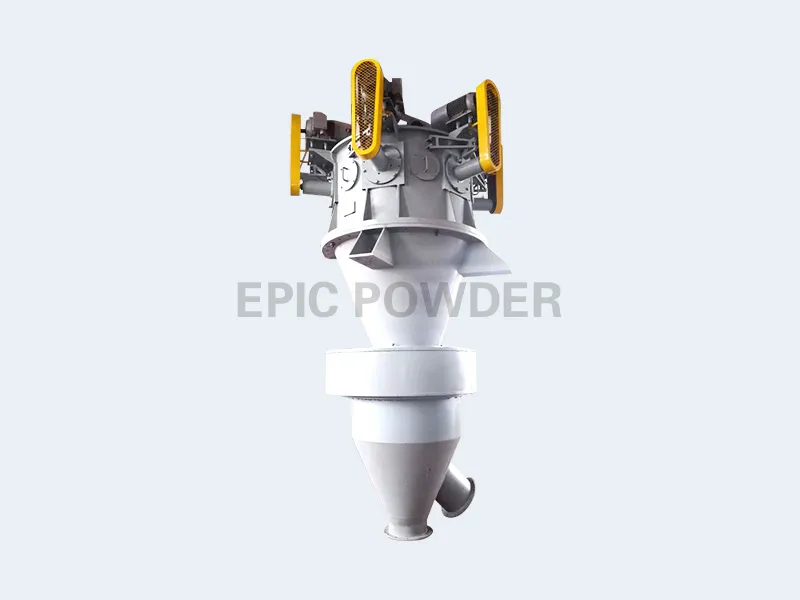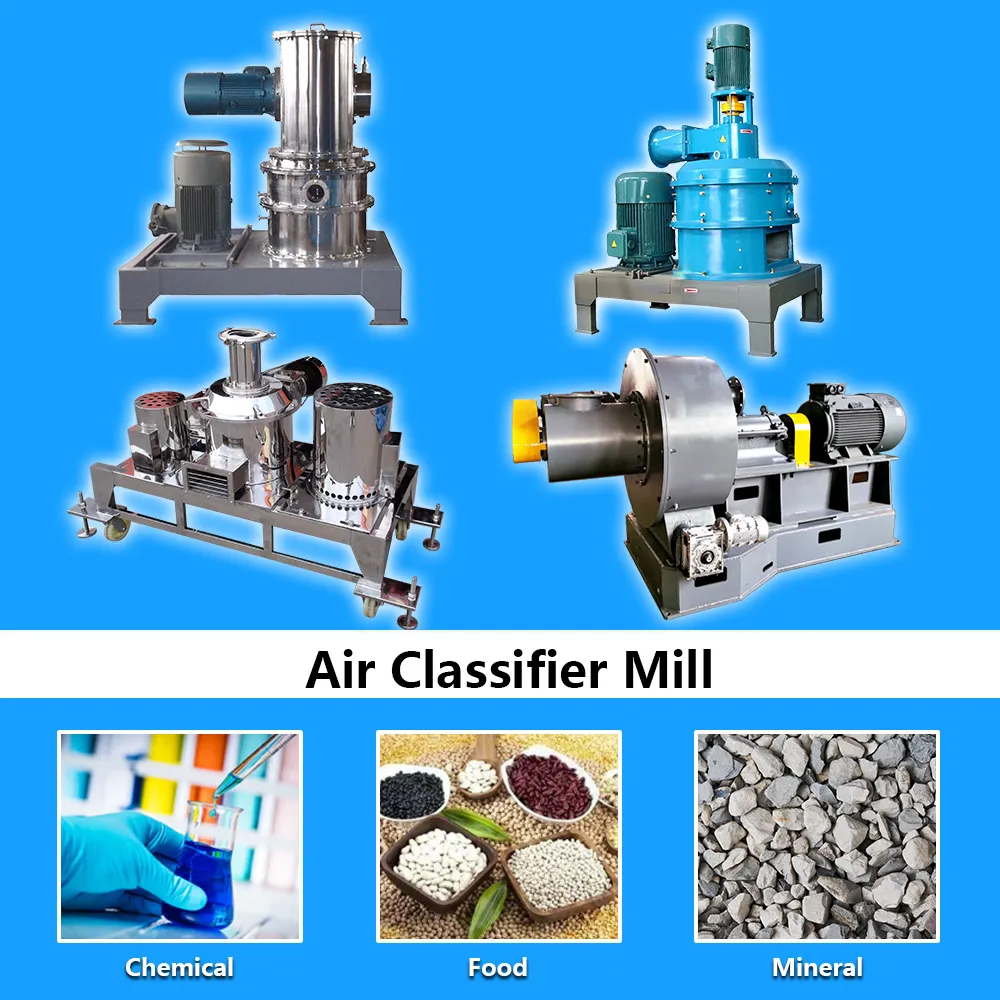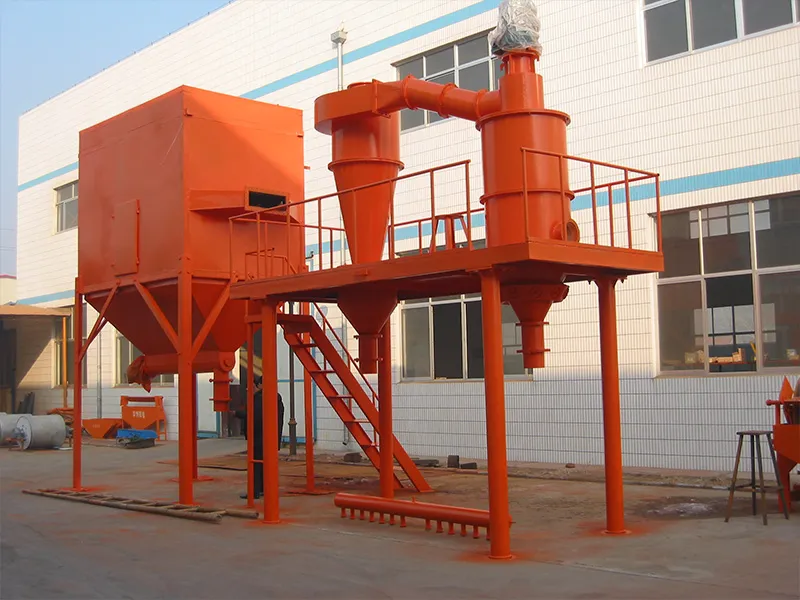What is Calcium Carbonate?
Calcium carbonate (CaCO3) is a naturally occurring mineral widely used in industries such as construction, plastics, paints, pharmaceuticals, and paper. It is found in limestone, marble, and chalk, and serves as a key raw material providing whiteness, opacity, and enhanced mechanical properties in many products. The versatility and abundance of calcium carbonate make it one of the most sought-after industrial minerals worldwide. Grinding calcium carbonate reduces raw stone into fine powder for diverse industrial uses.

Why Does Calcium Carbonate Need Classification Grinding?
However, simply grinding is insufficient. Uniform particle size and precise size distribution significantly impact product performance, dispersion, texture, and processability. For example, in plastics and coatings, calcium carbonate must have consistent fineness for optimal blending and surface finish.
Classification grinding integrates grinding and particle size separation into a continuous, closed-loop system. This process ensures oversized particles return for further milling, while fine powder meeting specification is collected. Such classification is essential to achieve targeted particle size distribution, reduce over-grinding, minimize energy consumption, and improve product quality.
Why Use Air Classifying Grinding for Calcium Carbonate?
Air classifying mills are favored for calcium carbonate grinding due to their ability to precisely control particle size distribution in a single operation. Unlike traditional mills, which often produce broad, multi-modal distributions, air classifying mills feature a dynamic classifier wheel that separates particles by size with high accuracy, returning coarse particles to the grinding chamber for reprocessing.
The air stream in these mills also serves dual purposes—transporting material and cooling the process—thus protecting calcium carbonate powder from thermal damage and maintaining its purity and whiteness. Operators can adjust classifier speed, airflow, and feed rates to tailor particle size to exact application needs, enhancing flexibility and cost efficiency.

Key Considerations in Calcium Carbonate Classification Grinding
Successful calcium carbonate grinding requires attention to several critical factors:
• Feed Size and Consistency: Irregular or oversized feed reduces mill efficiency and classification accuracy. Pre-crushing or screening may be necessary.
• Moisture Control: Excess humidity causes powder agglomeration, degrading flowability and particle size uniformity. Strict moisture control is vital.
• Equipment Material: Wear-resistant parts (e.g., ceramic or silicon carbide) minimize contamination and preserve powder quality.
• Airflow Stability: Consistent airflow prevents fluctuations in particle separation and supports uniform product output.
• Dust and Safety Management: Ultrafine calcium carbonate powder poses dust explosion and inhalation hazards. Proper dust collection, sealed systems, and ventilation are critical for safety.
Advantages and Limitations of Air Classifying Grinding for Calcium Carbonate
Advantages:
• Integrated grinding and classification for precise particle size control and narrow distribution.
• Low operating temperatures preserve powder whiteness and prevent thermal changes.
• Adjustable operating parameters enable customization for diverse application requirements.
• Energy efficient compared to multi-step milling and classification processes.
• Reduced contamination risk with proper wear-resistant materials and closed systems.
Limitations:
• Requires well-maintained components to sustain classification accuracy and efficiency.
• Initial investment cost is higher than basic grinding mills.
• Feed particle preparation and moisture control add operational complexity.

EPIC Powder Machinery’s Air Classifying Grinding Solutions for Calcium Carbonate
EPIC Powder Machinery leverages over 20 years of expertise to deliver advanced air classifying grinding systems optimized for calcium carbonate processing. Our mills combine precision rotor technology, durable wear-resistant components, and intelligent airflow control to achieve consistent particle size targets as fine as D90 ≤ 4 μm with high throughput.
Clients benefit from improved product quality, energy savings, and reduced maintenance costs. EPIC’s customer-centric approach includes personalized consulting to design and implement grinding solutions tailored to specific feed characteristics, production scales, and final product specifications.
By integrating grinding and classification in a single, closed-loop system, EPIC’s air classifying mills maximize efficiency while maintaining product integrity—ideal for industries demanding superior calcium carbonate powder performance.

